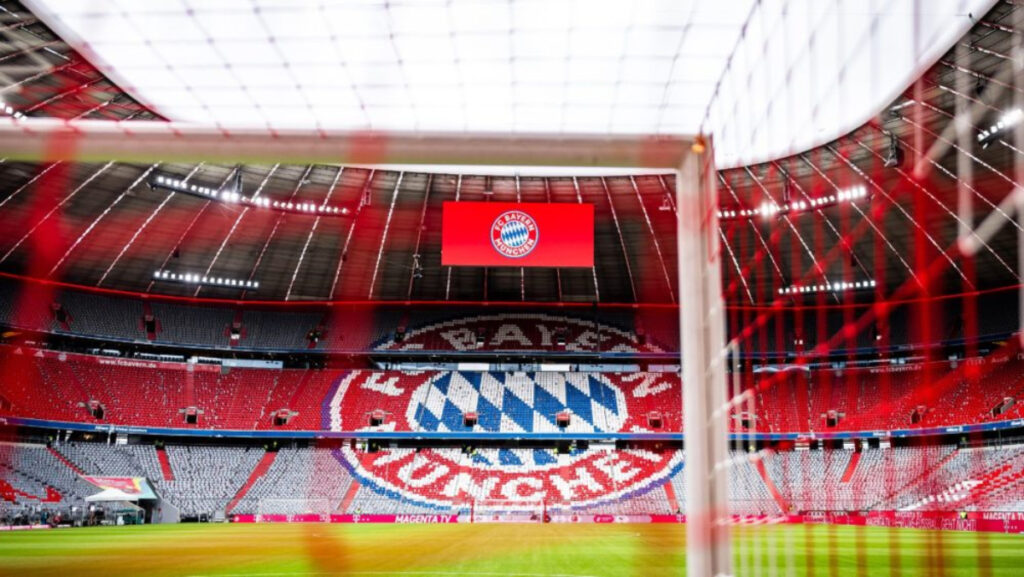Bundesliga
Fans fear the Bundesliga has become an investment project without emotion
It is clear even to the biggest football romantics that without sufficient financial capital, the so-called “financial cushion”, it is impossible to run professional football nowadays. But German fans fear that the Bundesliga has become an investment project without emotion.

It is clear even to the biggest football romantics that without sufficient financial capital, the so-called “financial cushion”, it is impossible to run professional football today. But German fans fear that the Bundesliga has become an investment project without emotion.
The covid epidemic has set an unpleasant mirror to the clubs. Revenue shortfalls have proved so fatal for many of them that they have threatened their very existence. The search for new resources was on. The value of TV rights is undoubtedly one way to get more money into football.
The publication of the value of the English Premier League’s television rights for four seasons has provoked envy as well as media firefights. English clubs will receive almost eight billion euros for 2025-29. The Premier League is the only one of the five prestigious leagues to see an increase in TV rights revenue. The runner-up, Spain’s La Liga, has at least managed to maintain its current level of revenue – €1.2 billion a year.
The Italian league even had to go down in price, and the tender from which the French League Federation (LFP) promised a significant increase in TV rights revenue from the current €600 million per season to €1 billion did not materialise due to lack of interest.
It should be noted that English clubs dissolve a substantial part of their income “anyway” in transfers for players from Germany, France, Italy or Spain. It is no secret that Bundesliga teams earned €450 million in this way in the last transfer window. This is a very beneficial sum for the German league, but it does not change the fact that, unlike the guaranteed income from TV rights, transfer sums are difficult to estimate in advance.
The Premier League rolls up the media appeal of everyone and everything by a difference of class, and we are not talking about the sale of international broadcasting rights, where the difference with the other four leagues is even more marked. It is therefore not surprising that the remaining leagues are increasingly looking for new models to increase their revenues and at least come close to the English competition.
They have gone in an unlikely direction in France, where they have given international investment company CVC a 13% share of the league’s TV rights revenues in return for a €1.5bn investment – all in perpetuity. They decided to follow a similar path in Germany. Here, representatives of the clubs of the 1st and 2nd Bundesliga voted this Tuesday by a narrow two-thirds majority to approach a suitable investor to finance the further international expansion of the German league.
The vote was accompanied not only by a heated debate between the clubs’ representatives, but also by concentrated opposition from fan initiatives that see such a move as a sanctification of the de facto sell-off of German football. Their position is quite important. German clubs may have their investors, but the main decision-making power lies with the civic association – that is, the association that officially sets up the club and its elected board of directors.
The board of directors is elected by the individual club members/fans, who often number several thousand, in regular general meetings. This is based on the “50+1” rule, which in German football “prevents” investors from controlling and freely disposing of clubs. Thus, the majority of the clubs are still held by the civic associations.
The management of the top German football league and the respective German Football Association (DFL – DFB), which governs the 1. and 2. Bundesliga, hopes to raise up to EUR 1 billion from a potential investor. In return for this sum, it will provide it with a 6-9 % share of the television rights revenue for a period of 20 years. What does it intend to do with the money? The DFL wants to invest the largest amount, €600 million, in the digitalisation and international promotion of the competitions.
Among other things, the aim is to set up its own video platform for the unlimited worldwide distribution of fee-based content and the sale of fan merchandise. There are also plans to include footage from the booths, club buses, interviews with players shortly before the opening whistle or the production of custom documentaries to appeal to an international audience. With its emphasis on greater visuality and digital form, the measure is undoubtedly aimed at younger audiences.
The DFL intends to invest the remaining funds in the foreign tours of the individual clubs (€100 million) and in compensating the clubs for the losses caused by the division of the television rights revenue between the clubs and the investor in the first four years (€300 million). The increased international attractiveness of the Bundesliga is expected to be reflected in an increase in TV rights revenues.
Representatives of leading clubs such as Bayern and Borussia, who support the decision, reassure outraged fans that there are proverbial “red lines” that the investor must not cross. It will not be able to decide on the game plan of competitions or on the matches of individual clubs abroad.
Critics argue that the current lack of funding at any of the clubs will sooner or later lead to a breach of the restrictions set. The fragile nature of the support gained for the DFL proposal is illustrated by the example of Hannover 96, a second league club whose representative and long-time investor, Martin Kind, voted against the wishes of his own club – the federal board – and his vote allowed the proposal to pass by a narrow majority.
In any case, this gave the DFL management a mandate to start negotiations with potential investors. In the first quarter of next year, the television rights for both Bundesliga leagues are to be re-tendered. A new investor should be confirmed by then. Most fans fear that this will turn German football into a “brainless commodity” – an easily interchangeable product with no relation to the tradition and wishes of the fans themselves.
Only the future will tell us whether this will help German football to develop further, or whether the dreaded Saudi-style ‘sell-off’ of players and clubs will occur. But it will not change the fact that without money you simply cannot do football!
Source: DFL, Bundesliga










